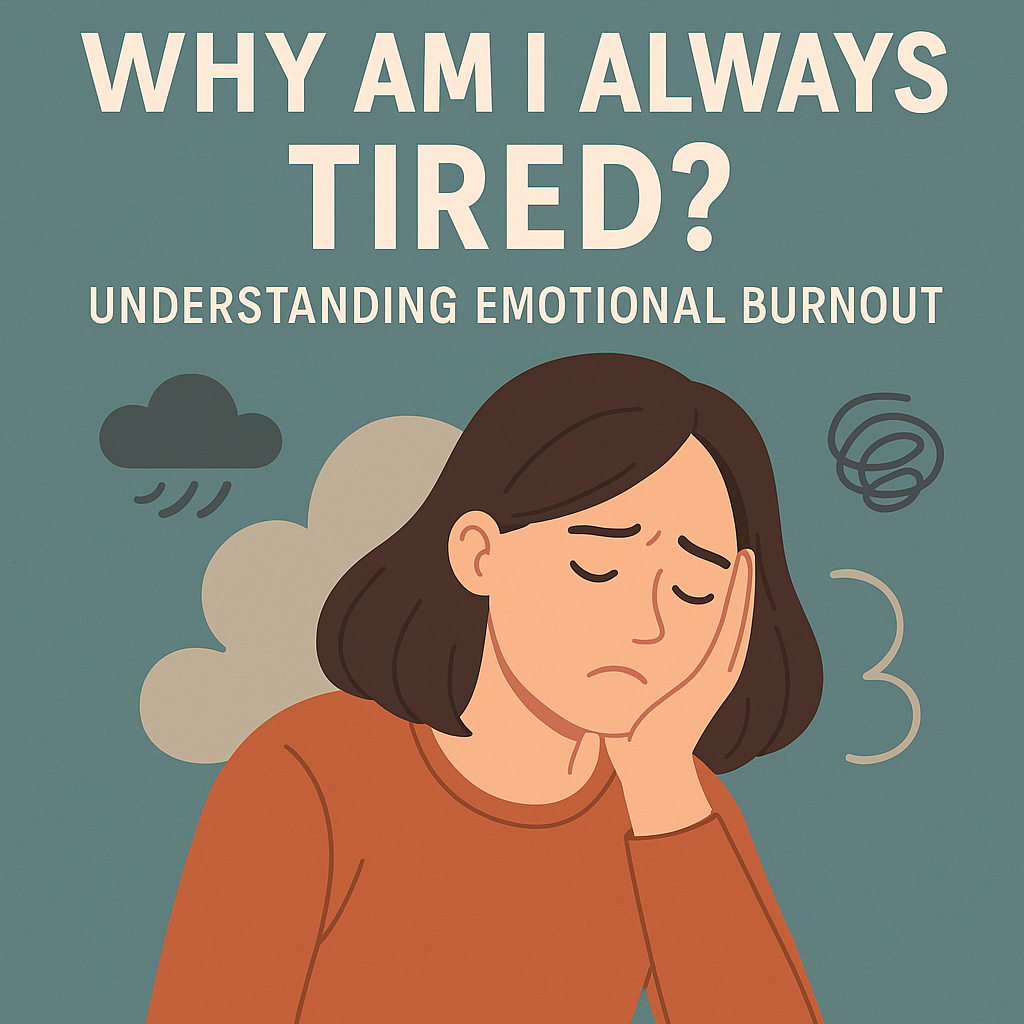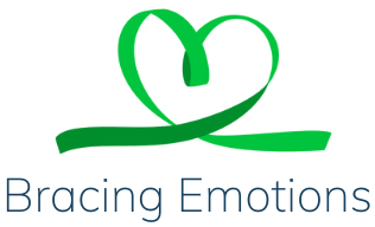
Why Am I Always Tired? Understanding Emotional Burnout
Why Am I Always Tired? Understanding Emotional Burnout explores the difference between physical and emotional exhaustion, signs of burnout, its causes, and actionable strategies for recovery and prevention.
Bracingemotions
5/25/20254 min read


Why Am I Always Tired? Understanding Emotional Burnout
It's 10 a.m., and you've already yawned five times, struggled to focus, and feel emotionally drained—and yet, you slept a full eight hours. So, why are you still tired? The answer might lie not in your body, but in your mind. Emotional burnout is a silent energy thief that wears you down from the inside out.
In today's fast-paced, high-pressure world, emotional burnout has become more than just a buzzword—it’s a widespread condition affecting people across all walks of life. From working professionals to full-time parents, the constant demands on our time and emotions can lead to deep, persistent fatigue that sleep alone can't fix.
Physical Tiredness: Causes and Symptoms
Physical fatigue typically results from lack of sleep, intense physical activity, poor nutrition, or health conditions like anemia or thyroid disorders. Symptoms include:
Muscle weakness
Physical sluggishness
Excessive yawning
Sleepiness throughout the day
Emotional Exhaustion: Causes and Symptoms
Emotional exhaustion, on the other hand, is rooted in chronic emotional stress. Common symptoms include:
Feeling overwhelmed and helpless
Emotional numbness
Cynicism or apathy
Lack of motivation despite rest
How to Tell the Difference
Unlike physical fatigue, emotional exhaustion doesn’t improve with sleep alone. Even after a restful night, you may still feel empty, unmotivated, or on edge. If your tiredness persists despite physical rest, emotional burnout may be the underlying issue.
Key Signs of Emotional Burnout
Chronic Irritability and Mood Swings
Small inconveniences start to feel like major annoyances. If you're snapping at loved ones or feeling easily frustrated, it might be emotional burnout talking.
Brain Fog and Cognitive Decline
Can't concentrate, forgetting appointments, or struggling to make decisions? Brain fog is a classic sign that your mental energy reserves are low.
Loss of Motivation and Detachment
Projects you used to enjoy now feel like burdens. You might also begin to emotionally detach from coworkers, family, or friends.
Sleep Disruption and Fatigue
Ironically, burnout often disrupts your sleep, leading to insomnia or poor-quality rest—worsening your exhaustion.
What Causes Emotional Burnout?
Chronic Stress and High-Pressure Environments
Whether it’s tight deadlines, long hours, or an always-on work culture, persistent stress gradually chips away at emotional wellbeing.
Poor Work-Life Boundaries
When work bleeds into personal time, your brain never truly relaxes, making it harder to recover from daily stressors.
People-Pleasing and Overcommitment
Always saying “yes” out of guilt or fear of disappointing others leads to overcommitment—one of the fastest routes to burnout.
Lack of Emotional Support Systems
Without someone to talk to or lean on, you're more likely to internalize stress, which accelerates emotional fatigue.
The Impact of Emotional Burnout on Daily Life
Personal Health and Mental Wellbeing
Chronic emotional exhaustion can manifest physically—headaches, stomach issues, and a weakened immune system are common.
Professional Productivity and Career Stagnation
Burnout can reduce your efficiency, creativity, and overall job satisfaction, potentially stalling your career growth.
Strained Relationships and Social Withdrawal
The irritability and emotional detachment that accompany burnout can damage personal relationships, leading to isolation.
How to Recover from Emotional Burnout
Prioritizing Rest and Sleep Hygiene
Create a sleep sanctuary—no screens before bed, a consistent bedtime, and calming routines like reading or warm baths.
Seeking Professional Therapy or Counseling
Talking to a therapist can help you unpack the emotional roots of your burnout and develop coping strategies.
Practicing Mindful Saying “No”
Learning to decline tasks and obligations that don’t serve your wellbeing is essential. “No” is a complete sentence.
Making Lifestyle Shifts: Diet, Exercise, Routine
Small lifestyle changes—like reducing caffeine, eating balanced meals, and taking daily walks—can greatly improve mental clarity and resilience.
Long-Term Prevention Strategies
Setting Boundaries and Managing Expectations
Be honest about what you can realistically handle. Protect your time and energy by clearly communicating limits.
Building Resilience and Emotional Intelligence
Practicing mindfulness, gratitude, and emotional awareness can enhance your ability to navigate stress.
Creating a Sustainable Work-Life Balance
Ensure that you regularly take breaks, plan vacations, and have tech-free times to truly disconnect and recharge.
Emotional Burnout in Different Life Areas
Burnout at Work vs Burnout at Home
Professional burnout often involves job-related stress, while personal burnout can stem from caregiving or domestic responsibilities. Both are equally valid and draining.
Parenting Burnout
Being "always on" as a parent can leave little room for self-care. It's crucial to carve out time to recharge.
Caregiver and Compassion Fatigue
Supporting others emotionally—whether a partner, parent, or patient—can deplete your own emotional reserves if not managed carefully.
When to Seek Help
Recognizing Red Flags
If you're experiencing symptoms like hopelessness, extreme fatigue, or suicidal thoughts, seek immediate professional support.
Resources and Support Systems
Reach out to therapists, support groups, or employee assistance programs (EAPs). You're not alone, and help is available.
Frequently Asked Questions (FAQs)
1. Is emotional burnout the same as depression?
Not exactly. While they share symptoms like fatigue and apathy, depression is a clinical mental health condition, whereas burnout is stress-related and often situational.
2. Can burnout cause physical symptoms?
Yes, it can lead to headaches, digestive issues, muscle tension, and a weakened immune response.
3. How long does it take to recover from burnout?
Recovery varies. With rest, support, and lifestyle changes, some may feel better in weeks, while others may need months.
4. What are the first steps to take when feeling emotionally drained?
Start by resting, identifying stress sources, setting boundaries, and talking to a trusted person or professional.
5. Is burnout reversible?
Absolutely. With the right interventions and support, you can recover and even become more resilient.
6. Can you prevent burnout while still being productive?
Yes, by setting realistic goals, prioritizing self-care, and maintaining healthy boundaries, you can thrive without burning out.
Conclusion
Feeling tired all the time isn’t always about sleep. Often, it's your mind crying out for rest. Emotional burnout is real, but it's also reversible. By recognizing the signs, understanding the causes, and implementing thoughtful recovery strategies, you can reclaim your energy, clarity, and joy.
Connect
Join our community for mental health discussions.
Support
© 2024. All rights reserved.

